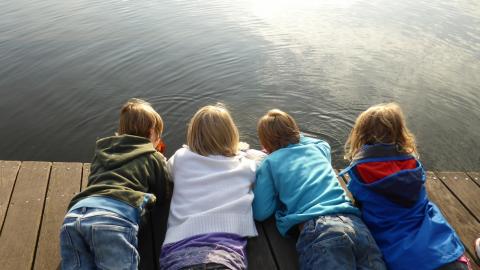Why Social, Emotional 'and' Mindful Learning?

Social and Emotional Learning (SEL) and Mindfulness Education are related but distinct approaches that can be implemented in before, during and after-school settings, including child and youth development programs (4-H, Boys & Girls Clubs, etc.). Both SEL and Mindfulness Education have received increased attention and considerable growth in curriculum development, research and teacher training in recent years. Some have noted the benefits of 'integrating mindfulness and SEL programs' and 'how mindfulness and SEL programs can work together.' I believe there is great value in lessons to be learned from both these strategies in support of Social, Emotional 'and' Mindful Learning (SEML) as a way of 'learning and being' in the world. As such, SEML can serve as a foundation for Positive Youth Development (PYD) and the lifeskill building, resiliency promotion and caring relationships that PYD requires.
When SEL is discussed, the Collaborative for Academic, Social and Emotional Learning (CASEL), founded in 1994, is often mentioned as a seminal resource. While there are many ways to divide up the SEL lifeskill pie, CASEL notes five 'core competencies,' including 1) self-awareness, 2) self-management, 3) social-awareness, 4) relationship skills and 5) responsible decision making. These competencies help us to to understand, manage and grow as individuals, as well as in our relationships with others and the world. CASEL serves as a repository for evidence-based programs that have demostrated impact in school environments, generally on academics, behaviors, attitutudes and skills. Substantial research has been undertaken on SEL programs over the years, including a 2017 Meta Analysis of SEL programs.
When Mindfulness (or Mindful Awareness) Education is discussed, there are a number of contributing traditions both new and old, with most curriculums tracing their roots to Mindfulness Based Stress Reduction (MBSR) established by Jon Kabat-Zinn in 1979. While Kabot-Zinn is not shy to acknowledge the contribution from some Buddhist mindfulness practices, Mindfulness Education as referred to here, like MBSR, is a secular education program appropriate for school and child/youth center environments. Mindfulness Education is grounded upon and continues to benefit from advances in neurobiology and brain science. One of the most recognized Mindfulness Education training programs and curriculum, Mindful Schools, was established in 2007 and has grown significantly in reaching children and youth, together with other evidence-based curriculum like MindUP and Inner Explorer. Mindfulness Education, like identified SEL programs, demonstrate positive awareness, behavior and relational outcomes, with an exponential increase in mindfulness research articles published in the last decade.
SEL programs often incorporate Mindfulness Education strategies and activities, and this is becoming more common with popular school-based programs like Open Circle and Second Step. However, most SEL programs focus on what may be referred to as a more traditional education and 'Outside In' approach, where children/youth aquire skills by following the lead, answering questions or completing assignments presented by an adult teacher. Mindfulness or mindful awareness can also be viewed as a skill or set of skills that increase with practice, but the focus is more on learning from the 'Inside Out' where the lived experience of the child/youth is a primary focus. Mindfulness education necessarily places the young learner in the driver's seat, encouraging focused attention on all our human senses, including thoughts and emotions as well as the people and world around us. Trained teachers and facilitators surely provide needed guidance and support, but the learner's experience from the inside out takes a front seat in routine (ideally daily) practice and mindful activities, with mindful teachers supporting this process.
When viewed in this manner, Mindfulness Education can enhance Social and Emotional Learning through a deeper awareness of self, a greater capacity to regulate our emotions, a heightened experience of our lived human connection with others and an expanded range of choices at our disposal that may lead to successful solutions to personal and social challenges. Children and youth can benefit greatly from an awareness of what's happening right now and the empowering social-emotional learning process that can unfold. Need we recall a lesson from Oogway to remind us of the importance and power of the present?
Rather than embrace SEL 'or' Mindfulness Education, one need not take such a firm stand--Outside In or Inside Out! With SEML, both can fit very nicely together as educators strive to not only ensure that schools and other child/youth program enviroments are safe, caring places for young people to learn, develop and thrive, but are places where children and youth are encouraged to practice and reflect on their unique human experience, with all their senses, and set the stage for being all they can be and developing caring connections with others. Maybe take a look at the Mindfulness Education Resources page, with anotated opportunities for mindful teaching and learning.
